The training program 6B04104 - “Management. Marketing. Sales” is developed for training personnel in the field of management and marketing within the framework of training bachelors of economics and business in compliance with the requirements of regulations of the Republic of Kazakhstan in the field of education and is agreed with representatives of organizations of the real sector of the economy.
The purpose of the educational program is to train competitive specialists in the field of management and promotion of goods and services, who know the specifics of HR management and team building, marketing tools, who know the basics of operational management, financial, economic and marketing analysis, crisis management and monitoring and are able to build a sales system that will bring the company the greatest profit.
The educational program is designed in such a way that it can be adapted to the individual needs of each individual student within the framework of educational standards.
Features of the educational program:
- The use of interactive teaching methods (interactive lectures, case studies, role-playing and business games, presentations and business projects).
- Relevant marketing and corporate management skills.
- Emphasis on knowledge of corporate competencies.
- Passing professional practices in leading companies.
- High percentage of professional employment.
- Orientation to the labor market of the region, the availability of annually updated elective disciplines at the request of employers.
- Integration of the educational process, scientific research and modern practice.
- Formation and development of creative, creative thinking of students in the process of completing practical tasks, press conferences, presentations, business projects, etc., which contributes to the adoption of optimal and effective solutions, including non-standard and original ones.
- Expansion of cooperation with major universities of the near and far abroad.
In order to develop additional competencies complementary to students chosen profile, Minor programs are implemented, which consist of a track of thematically related elective disciplines.
Available Minors in the educational program:

Mobile Application Developer

Internet Technology Specialist

Specialist in maintenance of electrical equipment and electrical networks

Translator
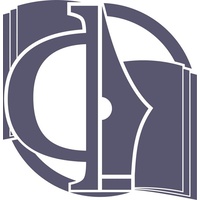
Philologist

Fundamentals of law

The tour guide

Human health

The basics of mediation and positive personal thinking
Obtaining a full, high-quality education, professional competence in the field of marketing, management and organization of production;
Acquisitions of a high general intellectual level of development, mastery of a competent and developed speech, humanitarian culture, high moral, ethical and legal norms, a culture of thinking and skills in the scientific organization of labor;
Development of creativity, initiative and innovation;
Competitiveness of graduates in the labor market, providing the opportunity for the fastest possible employment in the specialty;
Students choosing individual education programs;
Providing targeted training for organizations;
Mastering fundamental courses at the intersection of sciences, guaranteeing them professional mobility at the international level;
Deepening of theoretical, practical and individual training of students along the chosen learning path;
Developing students' ability to self-improvement and self-development, needs and skills of independent creative mastery of new knowledge throughout their active life;
Training of specialists with a high level of professional culture, including the culture of professional communication, having a civil position, able to formulate and practically solve modern scientific and practical problems, and successfully carry out research and management activities.
Key competencies in the training programAbility to correctly formulate their thoughts in Kazakh, Russian and foreign languages, oral and written language skills;
The ability to demonstrate knowledge, skills, skills and competencies in the field of general education disciplines;
The ability to conduct research and project activities, including problem analysis, setting goals and objectives, identifying the object and subject of research, choosing the method and methods of research, working with information sources, owning academic writing, demonstrating a culture of academic integrity;
Ability to work in a team, interact with a team, jointly solve production tasks, possess business communication skills;
The ability to understand the role and importance of information and information technologies in the development of modern society, to master the methods of working with information, modern information networks, to be able to search, store, process and analyze information from various sources and databases, to apply information technology in solving professional tasks;
The ability to think creatively and critically, analyze, synthesize information when solving specific tasks, and defend your point of view in a reasoned manner;
The ability to realize the social significance of his future profession, has motivation for personal development, the implementation of professional activities;
The ability to describe and analyze problems and situations of economic activity using the language and apparatus of mathematical sciences, as well as explain the basic management theories, methods of marketing, financial and production analysis, principles of developing strategic, tactical and operational solutions in the studied areas;
The ability to apply a marketing approach to the company's activities, create a brand, use the obtained analytics in the formation of a promotion strategy, navigate the types of advertising, create advertising, presentation and official texts, develop and promote official accounts in social networks;
Ability to analyze financial statements and the ability to make informed investment, credit and financial decisions, evaluate the effectiveness of using various accounting systems and cost allocation;
Possess modern methods of making and implementing organizational and managerial decisions, stimulation and motivation, distribution of responsibility, control and evaluation of personnel;
Possess data analysis technology, basic forecasting methods, identify problems, identify alternatives and choose optimal management solutions, analyze the state of the macroeconomic environment, the dynamics of its changes, industry markets to assess their impact on government and commercial organizations;
Develop business plans for the creation and development of new organizations (activities, products, etc.); corporate, competitive and functional strategies for the development of the organization; analyze the competitive sphere of the industry for modeling and optimization of business processes;
Demonstrate knowledge of the mechanism of state regulation of crisis situations; knowledge of the methodology of crisis diagnosis and the ability to develop a strategy and tactics of anti-crisis management of the organization.
Employability prospects for specialistsEconomic, financial, marketing, industrial, economic and analytical services of organizations of various industries, fields and forms of ownership;
State bodies of the republican and local levels;
Financial, credit and insurance institutions;
Business structures;
Industrial production;
Organizations that provide services for conducting marketing research, developing business plans and marketing plans, for introducing the principles of marketing management in enterprises, developing advertising campaigns;
Enterprise marketing departments;
Agro-industrial complexes;
Energy facilities;
Banks;
Travel, medical, construction companies;
Educational organizations, research institutes and centers;
Academic and departmental research organizations;
Bodies of social protection of the population, education, healthcare, culture;
Social services in the social production sphere;
Non-profit non-governmental organizations;
Consulting and audit firms;
Investment companies.
Types of professional activityOrganizational and managerial;
Design; production and technological;
Service and operational;
Experimental research;
Consulting;
Methodical.
The name of the organization for which dual training is implementedLLP "Production company "RESONANCE";
LLP "Bal Textile";
SKILLS AND COMPETENCIES
HR management company. Team building. HR management, motivation and staff development.
School of LeadershipAnalysis and optimization of company management policy and compiling of business processes. Change Management, Innovation
Crisis management. Risks management
Analytics. Market and competitive environment analysis, marketing strategy effectiveness assessment
Branding and Brand Management. Development of the brand image and development of a strategy for its promotion. Image copywriting
Increase brand awareness and sales. SMM marketing. Production of visual photo and video promotional materials
Transformation of personal values and personal motivation. Adaptation to Stress and Mediation. Foundation of a healthy lifestyle. Cultural and Spiritual Development
Author's approaches to multilevel study of foreign languages
Advanced skills in working with a personal computer, office equipment and software in the professional field. Business Planning Basics
SPEAKERS AND MENTORS
Durru Oguz
General Director of LLP ‘Bal Textile’
Esirkepova Altyn
Doctor of Economics, Professor
Shotaeva Kalzhan
General Manager at the City (Hotel, Hostel, Shopping Gallery), Master of Business and Management
Zhananov Asylzhan
Founder and CEO of ‘Smart Idea Group’
OUR PARTNERS
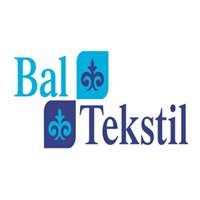
LLP "Bal Textile"

LLP "Energopotok"
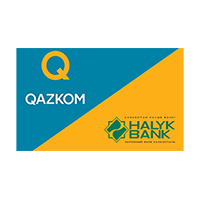
AOF Halyk Bank / Kazkommertsbank

LLP "ERNUR press"

LLP "Asia Service"
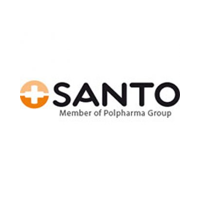
JSC "HIMFARM" / "SANTO"

LLP "DANI NAN"
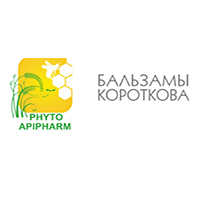
LLP "PHYTO APIPHARM"
EMPLOYMENT
Trading companies
Sales and customer acquisition department of business enterprises, banks, hotels
PR agencies
Advertising companies
CAREER & INCOME
Internet marketer — min 165 000 KZT
SMM-manager — min 100 000 KZT
CEO — min 200 000 KZT
Sales Manager (Active sales manager) — min 120 000 KZT
Marketer analyst — min 180 000 KZT
ADMISSION
On the School basis
- Documents:
UNT, ID
- Entrance tests:
Not applicable
- Training period:
3 years +Second higher education
- Documents:
Diploma, ID
- Entrance tests:
Job interview
- Training period:
Minimum 1 year 8 monthsBased on TVE (College)
- Documents:
UNT, ID
- Entrance tests:
Not applicable
- Training period:
Min: 2 years 6 months
Kambarova Karina. Graduated in 2013 Currently: Head of the commercial Internet portal of the city of Shymkent http://kuplu.kz/, head of the social project on employment of population in the Republic of Kazakhstan, South Kazakhstan region and the city of Shymkent
Daulet Niyazbek. Graduated in 2018, Akimat of the city of Shymkent, within the program "Youth Practice"
Frolkina Lyudmila. Graduated in 2016, specialist at PHYTO APIPHARM LLP
Independent Kazakhstan Agency for Quality Assurance in Education - IQAA. Certificate of Specialized Accreditation SA No. 0130/4 of 01.29.2018
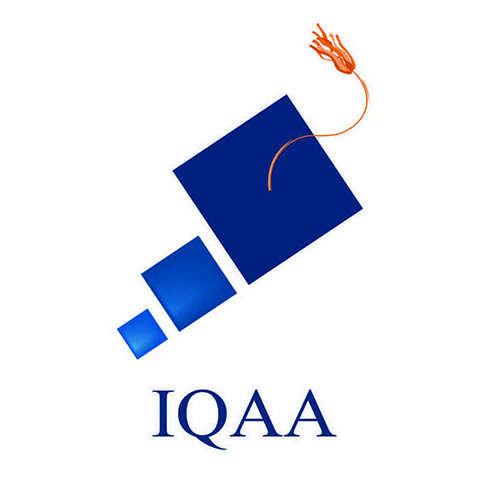
Nasipova Nurdana. Participation in the IV international competition of startup projects "My own business 2019"
Frolkina Victoria, Baysaparov Abdulaziz. group TR-811k-1 MSNPK on the topic "Topicality of contemporary student research: realities and prospects" (2018) 1st prize
Dulet Niyazbek. 3rd prize in the II regional competition of startup projects "My own business 2017"
Tsai Dmitry, Ramze Asyl, Gimadiev Ruslan. Participation in the II regional competition of startup projects "My own business 2017"
Typical curriculum of the educational program 6B04104 Management. Marketing. Sales
Name of disciplines Cycle of disciplines ECTS Brief description of the disciplines Kazakh (Russian) Language GED 5 Formed competencies: implementation of oral communication in dialogical and monological forms in situations of everyday, scientific, professional and business communication; implementation of communicative intentions in various types of written speech; maintaining contacts using e-mail; possession of communication skills in the process of official and informal contacts, in the field of everyday and professional communication; public speech skills; oral and written translation skills. The studied issues are: phonetic features, grammatical structure of the Kazakh language; basic vocabulary by fields of application (household, terminological, general scientific, business); methods of word formation, phraseological units; rules of translation technique; rules of spelling and punctuation; culture and traditions of Kazakhstan; rules of speech etiquette; rules of communicative behavior in situations of everyday, business, scientific and professional communication. Foreign Language GED 5 Formed competencies: implementation of oral communication in dialogical and monological forms in situations of everyday, scientific, professional and business communication; implementation of communicative intentions in various types of written speech; possession of communication skills in the process of official and informal contacts, in the field of everyday and professional communication; public speech skills; oral and written translation skills. The issues studied are: phonetic features, grammatical structure, of the English language; basic vocabulary by fields of application (household, terminological, general scientific, business); methods of word formation; rules of translation techniques; rules of spelling and punctuation; rules of speech etiquette; intercultural features and rules of communicative behavior in situations of everyday, business, scientific and professional communication. Physical Education GED 2 Formed competencies: demonstration of the implementation of mandatory and individually selected complexes of physical exercises, including recreational and adaptive physical culture; maintaining a healthy lifestyle; maintaining and developing basic physical qualities in the process of physical culture; possession of means and methods of strengthening individual health, physical self-improvement, various forms of motor activity for successful socio-cultural and professional activities. Studied issues: the discipline is focused on the consideration of the following issues: the importance of physical culture in human life; the values of physical culture and sports; factors that determine human health; the concept of a healthy lifestyle and its components; methodological foundations of physical education, the foundations of self-improvement of physical qualities and personality traits; the influence of health-improving systems of physical education on health promotion. Bases of Anticorruption Culture GED 5 Formed competencies: orientation in matters of current legislation; proficiency in analyzing normative legal acts, relations regulated by law, legal analysis of information; application of legal norms in specific situations, adherence to moral and legal norms in everyday practice; expression and justification of one's own point of view on issues of law and anti-corruption culture; conducting polemics in the legal field. Issues studied: the essence of corruption as a social and legal phenomenon; manifestation of corruption in public life; measure of moral and legal responsibility for corruption offenses; current legislation in the field of combating corruption; prevention of offenses. Oratory Art BD 5 Formed competencies: the ability to clearly express their thoughts, feel confident during communication and speech; command of voice and expressiveness of speech; control of listeners' attention; the ability to answer unexpected questions, effectively convince opponents and influence listeners; possession of methods and techniques for analyzing the partner's speech behavior, methods of self-control. The issues studied are: the basic categorical apparatus of public speaking; the history of public speaking; strategies and tactics of effective speech communications; algorithm for creating an effective public message; discussion and polemics. Sustainable development GED 5 Issues under study:the principles of sustainability of ecological and economic development of mankind; the reasons limiting the direction of further development of mankind; the relationship of social, economic and environmental aspects of development; the nature of objective biospheric limitations of human economic activity and the positive results achieved in recent decades in maintaining the sustainability of the development of the world community and an inexhaustible way of managing in conditions of limited natural resources and limited capacity of the biosphere. Formed competencies: possession of skills to substantiate one's own point of view on controversial issues related to the need to transition to sustainable development; economic approaches to assessing the state of ecosystems and be able to use them when making professional decisions; skills to develop standard environmental measures in design and production activities; methods for calculating the main indicators and indices of sustainable development; skills application of an interdisciplinary approach to the study and solution of sustainable development problems. Social and Political Studies Module (Sociology, Political Science, Cultural Studies, Psychology) GED 8 Formed competencies: explanation and interpretation of concepts, ideas, theories of sociology, political science, cultural studies, psychology; description, analysis of current problems of modern kazakh society, social processes; analysis of the features of social, political, cultural, psychological institutions in the context of their role in the modernization of kazakh society; designing prospects for the development of Kazakh society, solving social, political, personal problems, interpersonal and social conflicts; expressing one's own opinion on issues of social significance; generating ideas on issues of socio-political development of society and presenting them. The issues studied are: the main categories of political science, sociology, cultural studies and psychology; socio-ethical values of society; social, political, cultural, psychological institutions of society in the context of their role in the modernization of kazakh society and the principles of their functioning. Fundamentals of innovation and innovation activity GED 5 Formed competencies: analysis and evaluation of innovative projects; planning of work on the implementation of innovations, presentation of innovative projects; implementation of business planning of innovative projects. The issues studied are: the essence of the concepts of ""innovation"", ""innovative activity"", ""innovative project""; classification of innovations; factors determining innovative activity; sources of innovative ideas; priorities of innovation policy at various levels of economic management; basic models of innovative development. Fundamentals of Academic writing BD 5 Formed competencies: creation of written academic texts of various genres; design of a written text in accordance with accepted norms, requirements, standards; skills and abilities of compiling a bibliographic description of printed publications and electronic resources; skills of analytical work with scientific sources; editing of academic texts; critical evaluation of written works. The issues under study: the concepts of «academic writing», genres of academic writing (abstract, essay, review, abstract, scientific article, etc.), the basic principles of compiling and formatting academic texts and their presentation. Organization of project activities BD 5 In the process of studying the discipline, such competencies are formed as possession of methods of collecting and analyzing information; design and preparation of projects; possession of tools for organizing project activities; setting goals and objectives at each stage of project implementation; development of ways to solve the problem; practical application of design methods in professional activities. Workshop on the development of critical and creative thinking BD 5 Formed competencies: the ability to distinguish critical and creative ways of thinking from other forms of intellectual activity; possession of methods and techniques of creative thinking; the use of various models of critical and creative thinking in practice; the implementation of a critical analysis of the situation in the decision-making process based on awareness and interpretation procedures; the formulation and reasoned defense of one's own position on various problems, as well as the correct refutation of the opponent's position. The issues studied are: the nature, structure, functions of critical and creative thinking and methods of their formation; models of critical thinking; methods of stimulating, functions, types of creative thinking; the current state of decision-making theory; conceptual support for the decision-making process; tools of critical and creative thinking necessary for decision-making; types, strategies and methods of decision-making. History of Kazakhstan GED 5 Formed competencies: formation of objective historical knowledge about the main stages of the history of Kazakhstan from the ancient era to the present day, about the continuity and continuity of ethnogenesis, the formation and development of the statehood of the Kazakh people; mastering knowledge about the main stages of the development of human society from antiquity to the present day in the social, economic, political, spiritual and moral spheres with special attention to the place and role of Kazakhstan in the world-historical process; the development of the ability to analyze information contained in various sources about events and phenomena of the past and present, guided by the principle of historicism, in their dynamics, interrelation and interdependence, and the formation of historical thinking — the ability to consider events and phenomena from the point of view of their historical conditionality, to compare different versions and assessments of historical events and personalities, to correlate their views and principles with historically emerged worldview systems, to determine their own attitude to the controversial problems of the past and present. Issues under study: basic facts, processes and phenomena, concepts, theories, hypotheses characterizing the integrity and consistency of the integrity of the historical process; periodization of world and national history; modern versions and interpretations of the most important problems of national and world history; features of the historical path of Kazakhstan, its role in the world community. the most important methodological concepts of the historical process, their scientific and ideological basis; features of historical, historical-sociological, historical-political, historical-cultural, anthropological analysis of events, processes and phenomena of the past; historical conditionality of the formation and evolution of public institutions, systems of social interaction, norms and motives of human behavior; interrelationship and features of the history of Kazakhstan and the world, national and regional, confessional, ethnonational, local history. patterns of social development; features of development of Kazakhstan; the main historical facts and events of the socio-economic and political life of Kazakhstan at all stages of its development. Marketing Management BD 5 The discipline forms knowledge about the concept of marketing management as a modern business philosophy; develops knowledge, skills and skills of making marketing decisions at the strategic management level; the ability to evaluate organizational forms of marketing management; knowledge of methods of using modern operational marketing technologies in the processes of planning, organization of distribution, promotion and positioning of goods and services, the formation of the image and high reputation of the company through the study of public opinion, increasing the social responsibility of business; the ability to evaluate planning and management decisions to achieve a stable market position and achieve effective results of marketing activities. Physical Education GED 3 Formed competencies: demonstration of the implementation of mandatory and individually selected complexes of physical exercises, including recreational and adaptive physical culture; maintaining a healthy lifestyle; maintaining and developing basic physical qualities in the process of physical culture; possession of means and methods of strengthening individual health, physical self-improvement, various forms of motor activity for successful socio-cultural and professional activities. Studied issues: the discipline is focused on the consideration of the following issues: the importance of physical culture in human life; the values of physical culture and sports; factors that determine human health; the concept of a healthy lifestyle and its components; methodological foundations of physical education, the foundations of self-improvement of physical qualities and personality traits; the influence of health-improving systems of physical education on health promotion. Foreign Language GED 5 Formed competencies: implementation of oral communication in dialogical and monological forms in situations of everyday, scientific, professional and business communication; implementation of communicative intentions in various types of written speech; possession of communication skills in the process of official and informal contacts, in the field of everyday and professional communication; public speech skills; oral and written translation skills. The issues studied are: phonetic features, grammatical structure, of the English language; basic vocabulary by fields of application (household, terminological, general scientific, business); methods of word formation; rules of translation techniques; rules of spelling and punctuation; rules of speech etiquette; intercultural features and rules of communicative behavior in situations of everyday, business, scientific and professional communication. Kazakh (Russian) Language GED 5 Formed competencies: implementation of oral communication in dialogical and monological forms in situations of everyday, scientific, professional and business communication; implementation of communicative intentions in various types of written speech; maintaining contacts using e-mail; possession of communication skills in the process of official and informal contacts, in the field of everyday and professional communication; public speech skills; oral and written translation skills. The studied issues are: phonetic features, grammatical structure of the Kazakh language; basic vocabulary by fields of application (household, terminological, general scientific, business); methods of word formation, phraseological units; rules of translation technique; rules of spelling and punctuation; culture and traditions of Kazakhstan; rules of speech etiquette; rules of communicative behavior in situations of everyday, business, scientific and professional communication. Theory of Economics BD 5 Formed competencies: demonstration of scientific economic thinking for the independent application of methods, methods, tools of analysis in any field of economics; knowledge of general problems of economic development and the theoretical foundations of social production; possession of special economic terminology and vocabulary; familiarization with the achievements of domestic and foreign economic thought. The issues studied are: general fundamentals of economic development; the subject and method of economic theory; economic needs and interests; the economic system of society; property relations; forms of organization of social production and their evolution; patterns of development of transitional economies; general fundamentals of the market; market economy; competition and monopoly in a market economy; capital, costs and profit; national production and reproduction; state regulation of the economy; economic growth and cyclical development of the economy; world economy; globalization of the economy. Educational practice BD 2 The educational practice is aimed at obtaining primary professional skills in the field of management and marketing, the formation of a stable interest in the profession, professional orientation. Marketing in industries and fields of activity BD 5 The discipline forms knowledge about social and managerial processes aimed at meeting the needs and requirements of both individuals and groups of people by creating offers and services in organizations of various industries or fields of activity; skills in planning marketing research, market segmentation and choosing the right target audience; skills in organizing advertising in a marketing channel; sales management and business management skills. personal sales; ability to assess the market situation; conduct marketing research; evaluate the competitiveness of the enterprise and improve it, demonstrate the ability and willingness to apply the acquired knowledge in processing, analyzing and presenting the results of marketing research. Philosophy GED 5 Formed competencies: understanding and explaining the specifics of the philosophical understanding of reality; interpretation and justification of the content and specific features of the mythological, religious and scientific worldview; demonstration of methods of scientific and philosophical knowledge of the world in the implementation of project and research activities; argumentation of one's own position in relation to topical philosophical issues, global problems of modern society. The issues studied are: categories of philosophy, philosophical understanding and understanding of the role and place of education, science, technic, technology, man, art, freedom, culture, religion in society, methods of scientific knowledge, the evolution of philosophical thought from antiquity to the present. Fundamentals of Marketing and Advertising BD 5 The discipline forms knowledge about the basic socio-economic concepts of marketing; the ability to analyze the internal and external environment of the enterprise; demonstrate skills and abilities in the field of methodology and practice of marketing and advertising; skills of analysis and evaluation of information using information and communication technologies; the ability to participate in the planning of the main performance indicators of the organization. SMM Marketing BD 5 The discipline forms the basic concepts of SMM; knowledge of the basic methods of evaluating SMM campaigns, technologies for attracting an audience to SMM; skills in organizing audience participation in media production, media content exchange, including using interactive network exchanges; the ability to develop and promote official accounts in social networks. Internet Marketing BD 5 The discipline forms knowledge about the promotion of goods and services on the Internet; skills of using all aspects of traditional marketing on the Internet in order to sell a product or service to customers and relationship management with them; practical skills of applied economic and mathematical methods for market research on the Internet. Physical Education GED 3 Formed competencies: demonstration of the implementation of mandatory and individually selected complexes of physical exercises, including recreational and adaptive physical culture; maintaining a healthy lifestyle; maintaining and developing basic physical qualities in the process of physical culture; possession of means and methods of strengthening individual health, physical self-improvement, various forms of motor activity for successful socio-cultural and professional activities. Studied issues: the discipline is focused on the consideration of the following issues: the importance of physical culture in human life; the values of physical culture and sports; factors that determine human health; the concept of a healthy lifestyle and its components; methodological foundations of physical education, the foundations of self-improvement of physical qualities and personality traits; the influence of health-improving systems of physical education on health promotion. Psychology of communication and conflict management BD 5 Formed competencies: application of techniques and techniques of effective communication in professional activity; possession of methods of self-regulation of behavior in the process of interpersonal communication; possession of methods of interpersonal, intercultural, interethnic and business communication; identification of the causes of conflicts; management of the conflict process and their behavior in conflict; analysis of conflict situations; use of knowledge in the field of conflict management in practice for the prevention and resolution of conflict situations in the field of management; organization of negotiations and the use of various technologies of the negotiation process in practice. The issues studied are: the essence of communication; communicative, interactive, perceptual aspects of communication; communication functions; communication structure; types of communication; communication models; verbal and non-verbal means of communication; communication levels; the social nature of conflicts; causes of conflicts; types of conflicts; dynamics and mechanisms of conflict; conflict management in the organizational system. Fundamentals of accounting BD 5 The discipline forms knowledge about the content and purpose of accounting; theoretical foundations of grouping, systematization, cost reflection and generalization of information about accounting objects; the ability to analyze and interpret financial, accounting and other information contained in the reports of organizations of various forms of ownership; and also forms practical skills in processing primary accounting documentation, compiling accounting records, organizing and maintaining current accounting. Technology of professional success of a specialist in the field of business and management BD 5 In the process of studying the discipline, the ability to demonstrate the ability and willingness to understand modern issues in the field of business and management, professional ethics is formed; the ability to apply the principles and rules of professional ethics and etiquette in professional activity; demonstrate individual features of professional image modeling; knowledge of methods of professional and personal image. Personnel management BD 7 The discipline forms an idea of the goals, objectives, structure and functions of personnel management services, the role of managers in this work; knowledge of methods and organizational and legal foundations of personnel management; skills to assess the effectiveness of personnel management; the ability to organize a system of training and retraining of personnel; navigate marketing activities in the field of personnel, etc. Data Analysis in Python BD 7 The discipline forms knowledge about the content and functions of specific quantitative methods of social research; the ability to interpret the results obtained during data analysis using quantitative research methods from the point of view of formal statistical criteria; as well as the skills of practical application of the necessary sets of libraries and commands in the Python programming language for data processing and analysis. Neuromarketing BD 5 The discipline forms the ability to analyze the marketing communication of companies for compliance with the ethical and aesthetic requirements of the target segment, describes the immediate prospects for the development of neuromarketing methodology, demonstrate the skills of choosing options for using cognitive distortions to optimize customer experience. Information and Communication Technologies GED 5 Formed competencies: skills of using modern information and communication technologies in various fields of professional activity, scientific and practical work and other purposes; justification of the choice of the most appropriate technology for solving specific tasks; the ability to use Internet information resources, cloud and mobile services for searching, storing, processing and distributing information; the ability to use software and hardware of computer systems and networks for data collection, transmission, processing and storage; analysis and justification of the choice of methods and means of information protection; the ability to develop data analysis and management tools for various types of activities; implementation of project activities using modern information and communication technologies. The issues under study are: the content and trends in the development of information and communication technologies; methods of collecting, storing and processing information, methods of implementing information and communication processes; conceptual foundations of the architecture of computer systems, operating systems and networks; architecture of computer systems and networks, the purpose and functions of the main components; concepts for the development of network and web applications, information security tools. Personnel motivation and assessment PD 5 The discipline forms theoretical knowledge and practical skills on personnel evaluation in the personnel management system; knowledge of personnel evaluation methods, evaluation procedures, the structure of evaluation forms; knowledge of the relationship of the evaluation system with the material and non-material motivation of personnel. Microeconomics BD 5 The discipline forms theoretical and practical knowledge in the field of economic processes at the micro level; general cultural, general professional and professional competencies necessary in professional activity; the ability to analyze the patterns of the general circulation of consumer goods and resources characterizing the relationship of economic processes and phenomena at the micro level; the ability to apply theoretical knowledge to solve specific regulatory tasks and analyze the economic policy of the state; analyze information about the state of markets and the behavior of individual economic agents; critically evaluate options for management decisions in the field of business, develop and justify proposals for their improvement, taking into account the criteria of socio-economic efficiency, risks and possible socio-economic consequences. Financial Accounting BD 5 The discipline forms the following competencies: knowledge of the procedure for conducting internal financial accounting, its significance in the preparation of consolidated financial statements in accordance with international standards and the Law of the Republic of Kazakhstan "On Accounting and Financial Reporting"; the formation of complete and reliable information about the activities of the organization and its property status; the ability to apply the basic principles and standards of financial accounting for the formation of accounting policy and financial reporting of the organization, cost management skills and decision-making based on management accounting data. Performance management PD 5 The discipline forms knowledge and practical skills in the field of social and labor relations in the process of forming and using the labor potential of society. Internship 1 BD 5 Production practice 1 is aimed at obtaining professional skills in the field of management and marketing, forming an interest in the profession, allowing you to navigate the labor market and find yourself in the future profession. Development of mobile applications in the Android Studio environment (minor) PD 5 Formed competencies: knowledge of the Android platform; skills in developing mobile applications in the Android Studio development environment using the Java programming language and XML markup language; skills in mobile programming of mobile versions of Internet services and online stores in the Android Studio development environment. Studied issues: architecture of mobile operating systems; methods of creating mobile applications for the Android platform. Cybersecurity of information (minor) PD 5 Formed competencies: knowledge of general concepts of security in the information society; understanding of information security technologies; ability to apply cybersecurity rules in all spheres of activity. Issues under study: approaches and methods of developing various types of secure information systems. Theory of electrical circuits (minor) PD 5 Formed competencies: mastering the skills to calculate linear and nonlinear electrical circuits with concentrated and distributed parameters in stationary and transient modes; skills and abilities to analyze and calculate four-pole and electric filters; skills of modeling electrical circuits based on the use of applied software, experimental research of electrical circuits. Issues under study: basic laws of linear DC electrical circuits; methods for calculating currents; methods of imaging and parameters of sinusoidal electrical quantities; calculation of sinusoidal current circuits; calculation, measurement and analysis of circuits with serial and parallel connection of receivers; electrical circuits with mutual inductance; calculation of three-phase circuits; electrical circuits with non-sinusoidal periodic effects. Interpretation practice (minor) PD 5 Formed competencies: the ability to choose lexical units in accordance with the knowledge of the subject of translation, to perform various translation transformations based on the use of lexical and grammatical transformations, to transmit terms of a special orientation, to highlight the technique of writing in sequential translation and ""decoding"" recorded sentences, to conduct translation activities in accordance with the place and context of translation. The issues studied are: language tools in various pragmatic situations, depending on the specifics of the audience; the formation of interpretation skills based on highly specialized texts; the development and consolidation of methods and tools of translation technology; The main directions of modern linguistics (minor) PD 5 Formed competencies: to know the scope of the anthropocentric paradigm, the periods of the paradigm of cognitive linguistics, schools, representatives, the course of research; the formation of directions in Kazakh linguistics; structural, comparative-historical, anthropocentric directions in linguistics. The issues studied are: cognitive linguistics, scientific directions of linguistics, stages of the cognitive linguistics paradigm; recent achievements in the study of the science of cognitive linguistics in foreign and Russian linguistics; scientific directions in Kazakh linguistics; structural linguistics; history of the study of the science of anthropocentric linguistics. Constitutional law of the Republic of Kazakhstan (minor) PD 5 Formed competencies: the ability to interpret and apply constitutional legislation; the ability to make decisions and perform legal actions in strict accordance with the law; skills in applying normative legal acts; mastering the skills to implement the norms of substantive and procedural law in the professional activity of a lawyer; the ability to legally correctly qualify facts and circumstances. The issues studied are: the main provisions of constitutional law, legislation; the basic rights and obligations of citizens of the Republic of Kazakhstan; the structure, principles of organization and activities of state bodies (the President of the Republic of Kazakhstan, Parliament, Government, Constitutional Council, etc.), their acts; the foundations and prospects for the development of forms of direct democracy in the Republic of Kazakhstan. Geography of international tourism (minor) PD 5 Issues under study: modern research methods in the field of international tourism, factors determining the spatial development of tourism, natural and anthropogenic components that make up tourist resources, as well as prerequisites for the organization and development of tourism on the territory of tourist macro-regions and subregions of individual countries. Formed competencies: study of the basics of the formation of the main tourist flows of international tourism Basics of a healthy lifestyle (minor) PD 5 The formed competencies are aimed at the formation and promotion of a healthy lifestyle, the use of physical culture, natural forces of nature, restoration of working capacity, ensuring active longevity. Studied issues: the basics of a healthy lifestyle, motivational-value and activity attitude to health through the expansion, systematization and personal mediation of knowledge, skills and abilities; Basics of mediation (minor) PD 5 Emerging competencies: the ability to apply knowledge in the field of prevention, settlement, resolution of disputes, as well as in the organization of negotiations in subsequent practical activities. Issues under study: the main provisions of regulations applied in the field of mediation; theoretical knowledge in the field of prevention, settlement and resolution of disputes, organization of negotiations with the participation of a neutral mediator (mediator);"" Macroeconomics BD 5 The discipline forms knowledge, skills to use various means and technologies of training in the study of macroeconomic problems; forms an idea of the principles, methods of macroeconomics, basic macroeconomic models in order to objectively assess the effectiveness of economic policy; the ability to analyze macroeconomic indicators and macroeconomic models, evaluate the effectiveness of state macroeconomic policy, analyze the state of the macroeconomic environment. Management Accounting BD 5 The discipline forms theoretical and practical knowledge about management functions, as well as skills to study problem areas in cost accounting, the correct definition of cost calculation methods, analysis and evaluation of the state of production; skills to form and present management accounting information for making and evaluating the effectiveness of management decisions at various levels of management. Branding and brand management BD 5 The discipline forms key competencies in the field of branding, i.e. the development of a professional view of the activities of creating and managing brands, which will help in the future to develop competitive and protectable trademarks, determine their positioning and image, manage their development taking into account the marketing strategies of the company. Neuromanagement PD 10 The discipline forms knowledge of psychological and ethical features of communication management in projects; the ability to use neural networks for industrial and security tasks; the ability to use neuromarketing methods and techniques in financial risk management; possession of effective development tools that allows you to actively use intellectual activity. Programming in an X-Code environment for IOS (minor) PD 5 Formed competencies: knowledge of practical experience in programming applications and mobile applications for Mac OS and iOS operating systems. Subjects studied: Swift and Objective-C programming languages in the XCode visual programming environment; programming for Mac OS and iOS operating systems. JavaScript scripting language (minor) PD 5 Formed competencies: knowledge of web programming skills and creation of interactive websites using the JavaScript language. The issues studied are: the syntax of the JavaScript scripting language and its effective application in programming Internet applications; the main features of the JavaScript programming language and the practical application of this language in solving problems related to programming Internet applications. Installation, adjustment and operation of electrical equipment (minor) PD 5 Formed competencies: mastering the skills of fault detection, repair, installation and adjustment of open and closed wiring and electrical installations; mastering the skills of calculating the main technical and economic indicators of electrical equipment; skills of quality control of electrical work, testing equipment, cable lines. Issues under study: the structure and tasks of electrical installation organizations, the basics of their organization, industrialization and mechanization; general information about couplings and seals, their purpose and classification. Written translation experience (minor) PD 5 Formed competencies: the ability to choose lexical units in accordance with knowledge of the subject of translation, to perform various translation transformations based on the use of lexical and grammatical transformations, to transmit terms of a special orientation, to master the technique of writing in sequential translation and """"decoding"""" recorded sentences, to conduct translation activities in accordance with the place and context of translation. The issues studied are: features of written translation of a foreign language; the main terminological base in the directions; the technique of translation records; the choice of adequate lexical material; the correct use of special-purpose terms. Cognitive linguistics (minor) PD 5 Formed competencies: understanding and comprehension of the concepts of concept, meaning, as well as the structure of the concept and methods of its description; formation of the linguistic outlook of students; formation of skills of systematization of the basic concepts of science cognitive linguistics; has a modern scientific paradigm, the ability to independently acquire and use new knowledge and skills in research and practice; has the skills of socio-cultural and intercultural communication, ensuring the adequacy of social and professional contacts. Subjects studied: forms, goals, tasks, history of cognitive linguistics formation, its connection with other branches of science, manifestations in linguistics; scientific directions in linguistics; concept of concept, concept and conceptual structure, linguistic personality, linguistic image of the world, conceptual metaphors, cognitive phraseology, including scientific concepts about the cognitive aspect of ethnographic phraseology. Theory and history of state and law (minor) PD 5 Formed competencies: the ability to interpret and apply normative legal acts; the ability to analyze the role of the state and law in the life of society; the ability to explain the patterns of development of the state and law; mastering the skills to analyze the content of legal acts regulating human rights and freedoms; mastering the skills of forecasting the form of development of the modern state and law. Issues under study: the general concept of the theory and history of the state and law, their social purpose, tasks, functions and roles in historical development. Excursion studies (minor) PD 5 Formed competencies: reveals the functions and principles of the excursion, methodological techniques of storytelling and display, provides a classification of excursions and analyzes in detail their broad topics. The issues studied are: the basics of excursion services for tourists and the local population, the preparation of an excursion route, the technological map of the excursion as a pedagogical cognitive and educational process. Fundamentals of radiation safety (minor) PD 5 Formed competencies: the ability to diagnose problems of nature protection, develop practical recommendations for its protection and sustainable development Issues under study: general concepts of radioactivity and dosimetry of ionizing radiation, mechanisms of interaction of ionizing radiation with biological objects, natural and man-made sources of radioactive pollution of the environment, methods of radiation control and conditions for safe work with sources of radioactive radiation. Psychology of creative thinking (minor) PD 5 Formed competencies: the use of psychological techniques for the development of creative thinking; skills of creative reflection in professional activity; skills of adaptation to difficult professional situations; skills of transferring experience of using creative techniques to other members of the team in the process of professional activity. Merchandising BD 5 The discipline forms knowledge about how to attract consumers to the store and draw their attention to the goods; the ability to increase the time spent by the buyer in the trading floor and the number of purchases made by them; the ability to influence consumer behavior by observing social rules and ethical sensitivity; skills and abilities to reduce cognitive dissonance and increase customer loyalty to the trading company. Product Design and Development PD 10 The discipline forms knowledge about the concept of "new product", methods of market research of a new product and the process of its development; knowledge of the stages of the innovation process and the patterns of management of the development of a new product; skills of conducting market research and calculating the price of a new product; mastering the skills to develop a marketing policy of the organization to promote new products to the market. Production Management PD 10 The discipline forms knowledge and practical skills in the field of managerial decision-making related to the production (operational) activities of the enterprise; skills in researching methods of rational organization of production processes; practical skills in the most efficient use of production resources of the enterprise. Change management PD 10 The discipline forms knowledge about the patterns of development of the organization and the main models of organizational change; skills of change management in the organization using modern management tools and methods; knowledge of various approaches to change in modern companies, strategic types of organizational changes and modern change management tools. Crisis Management PD 10 The discipline forms a system of knowledge about the concept of crisis management in a market economy based on the study of the laws of development of economic systems, the theoretical foundations of crisis management, the methodology of recognition, diagnostics; as well as the skills of making and implementing management decisions to prevent or overcome the crisis of the organization. Internship 2 BD 5 Production practice 2 is aimed at consolidating theoretical knowledge, working out professional skills and abilities in the conditions of real work activity. Internet of Things Technologies (Ot) (minor) PD 5 Formed competencies: the ability to accept serious technical tasks, study the main trends and conditions of the Internet of Things (IoT), as well as social tasks and opportunities. Topics studied: the latest knowledge and skills of the Internet of Things (IoT); Raspberry Pi and Beagle Bone Black Wireless platforms. Development of web applications in Php (minor) PD 5 Formed competencies: proficiency in the development of web pages and web applications using the Php language. Topics studied: Php web application programming languages; a set of Php language functions designed for website development; theoretical and practical knowledge in the field of Internet programming; the use of Php web application programming language. Design of small power supply systems using renewable energy sources (minor) PD 5 Formed competencies: mastering the skills of automated design of printed circuit boards; knowledge of the main measures to improve the efficiency and optimize the structure of renewable energy sources. Issues under study: the main aspects of designing small power systems based on renewable energy sources, their introduction into the existing power system of the country and the features of this process. Innovative translation technologies (theory and practice) (minor) PD 5 Emerging competencies: modern technologies in translation. Requirements of the modern international translation market. Translation Memory technology. Software products using Translation Memory technology. The principle of operation of the Wordfast program and its analogues. Electronic information resources of the translator. Methods of using the Internet in the translation process. Linguistic information resources. Complex application of electronic resources in translation. Issues under study: Formation of knowledge about modern translation technologies; formation of practical skills of working with automated translation systems; mastering modern information technologies and ways of their application in modern translation practice; formation of general cultural and professional competencies related to obtaining and processing linguistic information using information technologies; Ethnolinguistics (minor) PD 5 Formed competencies: the ability to work with ethnolinguistic dictionaries, lexical atlases; apply the theoretical and practical knowledge gained when working with text; create original educational products within the framework of the discipline being implemented; apply knowledge of ethnolinguistics when writing works in the field of professional activity, taking into account the factor of cultural diversity. Issues under study: methodological foundations of ethnolinguistics, the conceptual apparatus of this science, its connection with other humanities; the formation of an idea of the identity of ethnic languages and the ""pictures of the world"" represented by them; language and national culture, research methods of Kazakh ethnolinguistics; the principle of consistency in Kazakh ethnolinguistics, scientific directions of cultural studies through language; country studies, linguoculturology, ethnolinguistic channels, the main factors underlying the formation of national culture, sources of national and cultural significance in the formation of Kazakh phraseology, the linguistic image of the world. Administrative law of the Republic of Kazakhstan (minor) PD 5 Formed competencies: the ability to work with ethnolinguistic dictionaries, lexical atlases; apply the theoretical and practical knowledge gained when working with text; create original educational products within the framework of the discipline being implemented; apply knowledge of ethnolinguistics when writing works in the field of professional activity, taking into account the factor of cultural diversity. Techniques and tactics of active types of tourism (minor) PD 5 Formed competencies: the ability to classify various types of active tourism; organize and conduct an active hiking trip; develop your own tourist route; Issues under study: the concept of technology, tactics and organization of active travel in different types of tourism as one of the most promising forms of activity of tourist structures in Kazakhstan, taking into account the regional characteristics of tourist and recreational resources of Kazakhstan. Nanotechnology (minor) PD 5 Formed competencies: the ability to make a connection between the structure, composition and properties of nanomaterials, to use reference material on their structure and properties. Issues under study: directions of nanotechnology, a set of biological and technological methods, the study of nanoparticles, nanostructures, nanomaterials, nanoconnections and others for controlling the process of life activity of organisms that ensure normal functional life in the natural environment. Psychosomatics (minor) PD 5 Emerging competencies: the ability to predict changes within various types of professional activity and to understand the functioning of various components of the psyche in norm and pathology The issues studied are: psychosomatic disorders, the factors of their occurrence, psychological effects aimed at optimizing the condition of people who have them, the study of the main psychosomatic theories, types of psychosomatic disorders, about a person's attitude to the disease and the factors of its formation. Self management BD 7 The discipline forms knowledge and skills to plan personal development, personality characteristics and assessment of development potential; knowledge of the role and importance of time in self-management, organization of employees' working hours; skills in applying methods of managing personal development and career, personal development; skills in implementing the intended goals of personal development, taking into account the conditions, means, personal capabilities, critical assessment of the use of internal and external resources in solving tasks. Taxes and taxation BD 5 The discipline forms a system of theoretical knowledge and practical skills necessary to understand the basics of taxation, characteristics of theoretical aspects of taxation, disclosure of the mechanism for calculating taxes; develops the ability to calculate tax bases and amounts of tax payments payable to the budget by economic entities on the basis of standard methods and the current regulatory framework. Project Management and Business Administration BD 5 The discipline examines the basic concepts and concepts of business administration and design; instills skills and abilities to identify and analyze management problems or business development opportunities both within an existing company and in the format of a fundamentally new business project; the ability to apply the skills of formulating entrepreneurial goals and organizing their implementation. Project and Innovation Management BD 5 The discipline forms knowledge of the basic concepts, philosophy and methodology of project management; basic skills of innovative project management; the ability to apply modern project management technologies in the implementation of innovative projects, to compile project documentation and controlling innovative projects of various types and scales. Data Analysis and Economic Forecasting PD 10 The discipline forms knowledge of modern directions of economic and mathematical modeling, both at the level of microeconomics and at the level of macroeconomics; knowledge of the basic methods of analyzing economic data to justify decision-making and forecasting socio-economic development. Copywriting PD 5 The discipline forms an understanding of the specifics of working in a multimedia environment, knowledge of methods and technologies for preparing media products in different sign systems (verbal, audio, video, graphics, animation) Commercial activity PD 5 The discipline forms knowledge of methods of organization and development of commercial activity; the ability to apply the methodology of commercial activity in the market of goods; to apply methods of management of commercial processes of trading enterprises. Underwriting BD 7 The discipline forms knowledge in the field of services provided by financial institutions, such as banks, insurance companies that guarantee payments in case of financial losses; skills in risk analysis, assessment of the client's solvency; ability to determine the probability of non-repayment of funds; acquisition of practical skills necessary for conducting underwriting operations. Tax consulting BD 5 The discipline forms a system of theoretical knowledge about the essence of tax consulting: consulting on VAT, income tax, other taxes and fees, the procedure for conducting financial Due Diligence of M&A transactions, introduces strategies for reducing the tax burden with the help of tools provided by law, analysis of risks in tax planning schemes; forms skills for tax consulting on VAT. Big Data Analytics PD 5 The discipline forms a system of theoretical knowledge and practical skills in the application of techniques and methods of analysis and processing of big data, effective use of data in the organization, in marketing and business; knowledge of the basics of financial accounting and reporting, as well as the principles of management accounting in order to use accounting data for managerial decision-making, the ability to assess trends and patterns of development of external and internal the economic environment, its impact on the results of the economic activity of the organization in the current and long-term perspective Pre-graduate practice PD 15 Pre-graduate practice is the preparation of a future specialist for professional activity, aimed at consolidating theoretical knowledge and obtaining practical skills in the specialty, it is also a preparatory stage of completing a thesis, during which the student collects initial data for conducting research. Writing and defending a thesis / project Additional cycle of disciplines 8